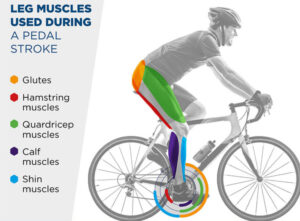An athlete’s key to success lies beyond his physical prowess. Here’s how he or she can train his mind to boost performance
To be a successful athlete, you need to train your brain too! Yes, you read it correct. Neuroscience is revolutionizing sport and can help an athlete perform better. Unlike the amateurs, experts claim that ‘the minds of elite athletes can pull off feats of anticipation and co-ordination.’ Hours and hours of practice through years of toil trains the ‘athletic brain.’ Researchers have found that it takes more than the strength of muscles to excel in sports. An expert athlete takes the spectators in awe of its ability to make plans on the fields in the blink of an eye. In no time, he or she is able to study and analyze patterns, gauze the target and spot the visual clues. For instance, in milliseconds, before taking a free throw, a basketball player gathers key information about its target.
Can we train an athlete’s brain?
In his book, ‘The Athletic Brain’, award-winning sports science journalist Amit Katwala writes: ‘Cognitive training tools offer the tantalising possibility of breaking the ‘10,000-hour rule’. High performance athletes and teams are increasingly tapping into new knowledge of the brain to develop tools and techniques that can offer a shortcut to sporting success, or push the boundaries of performance beyond its current limits.’ According to Katwala, these tools are becoming available to the amateur, revolutionising the ways in which anyone can improve their skills.
Experts believe that the future performance lies in understanding how an athlete’s brain processes sensory input, rather than trying to increase strength and flexibility with muscle strengthening.
Ways to train brain like an elite athlete
1. Focus on the process more than the outcome: “The process includes small things to be done to reach goals or become the best at one’s craft. The world’s best spend 95% of their attention focused on the process and in the present. They drift their attention to the outcome and the future onlyto stay motivated and excited,” said experts. If you spend too much time focused on the outcome, we will experience anxiety, stress and pressure.
2. Learn and burn: Best athletes have a short-term memory of their mistakes and a long-term memory of their successes. The elites intentionally savor the great moments to fully experience them, and let go of the mistakes quickly. An athlete must learn from the mistake, but then quickly burn or let go of it to protect confidence.
3. Expect adversity: Best athletes that can sustain high levels of performance realize that adversity helps them grow and learn. The best believe that adversity happens forthem, not to them. They don’t view adversity and setbacks with a victim approach, instead, they realize they are in control of how they respond to the difficulty or situation.
4. Believe in one’s purpose: An elite athlete knows and understands his or her purpose. They realise that they are here for something bigger and live their purpose on the field or court. They believe their purpose is beyond themselves and this inspires them every day.
5. To own the moment: An elite athlete understands that their best can only happen in the present moment, not if their mind is focused in the past or the future. They practice intentional strategies to live and play in the present moment.









